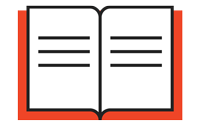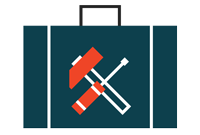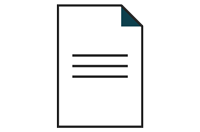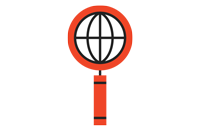
Shifting the Locus of Learning: Catalyzing Private Sector Learning to Drive Systemic Change
- Partner: USAID Feed the Future Market Systems and Partnerships (MSP)
- Publication Type: Learning Brief
- Date: January 23, 2023
Learning is at the heart of the process of economic development—it drives more competitive, resilient, and inclusive firms and systems. Yet learning is less frequently seen as a critical function within systems that can catalyze and quicken systems change and enable adaptation. This brief makes the case that programs can and should shift the locus of learning from being only program-focused to system-focused.
Read More
Feed the Future Inova Business Cases
- Partner: USAID, DAI
- Publication Type: Business Cases
- Date: February 10, 2022
The USAID Mozambique Feed the Future Agricultural Innovations Activity (FTF Inova), implemented by DAI in partnership with MSA, developed six business cases to offer tangible proof that enterprises can profit from investing in addressing challenges experienced by smallholder farmers. The business cases cover three themes: supply chain management; input distribution networks; and support services. Each business case summarizes the prevailing business model being applied, the new opportunity, what options were explored, the value proposition for smallholders and others, the timeline, return on investment, recommendations, and risks going forward.
Read More
Putting Gender at the Heart of Business Environment Reform
- Partner: International Labour Organization (ILO)
- Publication Type: Report
- Date: October 25, 2021
This report charts some key entryways for better incorporating gender in business environment reform, with a focus both on policies themselves, and the processes for their proper implementation.
Read More
Investment Climate Reform Toolbox
- Partner: Investment Climate Reform Facility (ICR Facility)
- Publication Type: Toolkit
- Date: September 2, 2021
The Investment Climate Reform Toolbox (ICR) Toolbox is written for policy-makers and the business membership organizations in African, Caribbean and Pacific (ACP) countries and beyond, and is designed to respond to common challenges faced by those working to develop a business environment for a thriving, inclusive, and sustainable private sector.
Read More
Beyond building: how social norms and networks shape mason construction practices in incremental homebuilding
- Partner: Habitat for Humanity Terwilliger Center for Innovation in Shelter
- Publication Type: Journal Article
- Date: September 1, 2021
How do low-income households and masons make house construction decisions? This three-country study examined social norms, networks, and information flows that influence construction practices in Kenya, India, and Peru. The research sought to answer the following questions: 1) How do households and individuals make housing decisions? 2) What are the information flows, key influences, and social norms that steer these decisions? and 3) How can programmes leverage knowledge about norms to improve the quality of home construction?
Read More
The Return on Investment of Social Inclusion: An Evidence Gap Analysis from Developing Countries
- Partner: USAID
- Publication Type: Brief
- Date: August 16, 2021
This brief analyzes the existing literature from developing countries on how firms invest in social inclusion and measure its return on investment. It then analyzes existing evidence gaps and makes recommendations on how firms and USAID partners working in private sector engagement and market systems development can improve their investments and fill evidence gaps.
Read More
The Great Opportunity and Challenge of MSD Ex-Posts: 4 Takeaways from a Rapid Harvest of Insights
- Partner: USAID
- Publication Type: Blog
- Date: August 5, 2021
Ex-post evaluations are a key way to build the evidence base for the scalability and sustainability of the market systems development approach, yet few have been funded through to completion. This blog shares insights on conducting market systems development ex-post evaluations as part of the DAI-implemented Market Systems and Partnerships (MSP) activity.
Read More
How the Private Sector Measures Social Inclusion and its Return on Investment: A Framework to Inform Future Research
- Partner: USAID
- Publication Type: Brief
- Date: May 25, 2021
This brief documents how different private sector actors understand and measure social inclusion and its return on investment (ROI) as an initial step to frame further research on the business case for social inclusion in developing countries. This brief was produced as part of MSA’s work with the Feed the Future Market Systems and Partnerships (MSP) Activity, a set of learning initiatives around social inclusion.
Read More
Evidence Review of Women’s Groups and COVID-19: Impacts, Challenges, and Policy Implications for Savings Groups in Africa
- Partner: The SEEP Network and the Evidence Consortium on Women’s Groups
- Publication Type: Brief
- Date: April 20, 2021
Developed by the Evidence Consortium on Women’s Groups, this brief presents emerging evidence from studies in diverse African contexts— with a deep dive into Nigeria and Uganda—on how COVID-19 has affected Savings Groups and how these groups have helped mitigate the pandemic’s negative consequences in sub-Saharan Africa.
Read More
Measuring what matters: Monitoring and results measurement
- Partner: Springfield Centre
- Publication Type: Book Chapter
- Date: April 2021
In Chapter 4 from "Making Markets Work for the Poor," a recent edited work inspired by the life and legacy of Alan Gibson, MSA Founder and Principal Ben Fowler and co-author Jake Lomax examine the shift in M4P programmes from monitoring and evaluation to monitoring and results measurement to inform decision-making and understand system-level change.
Read More


